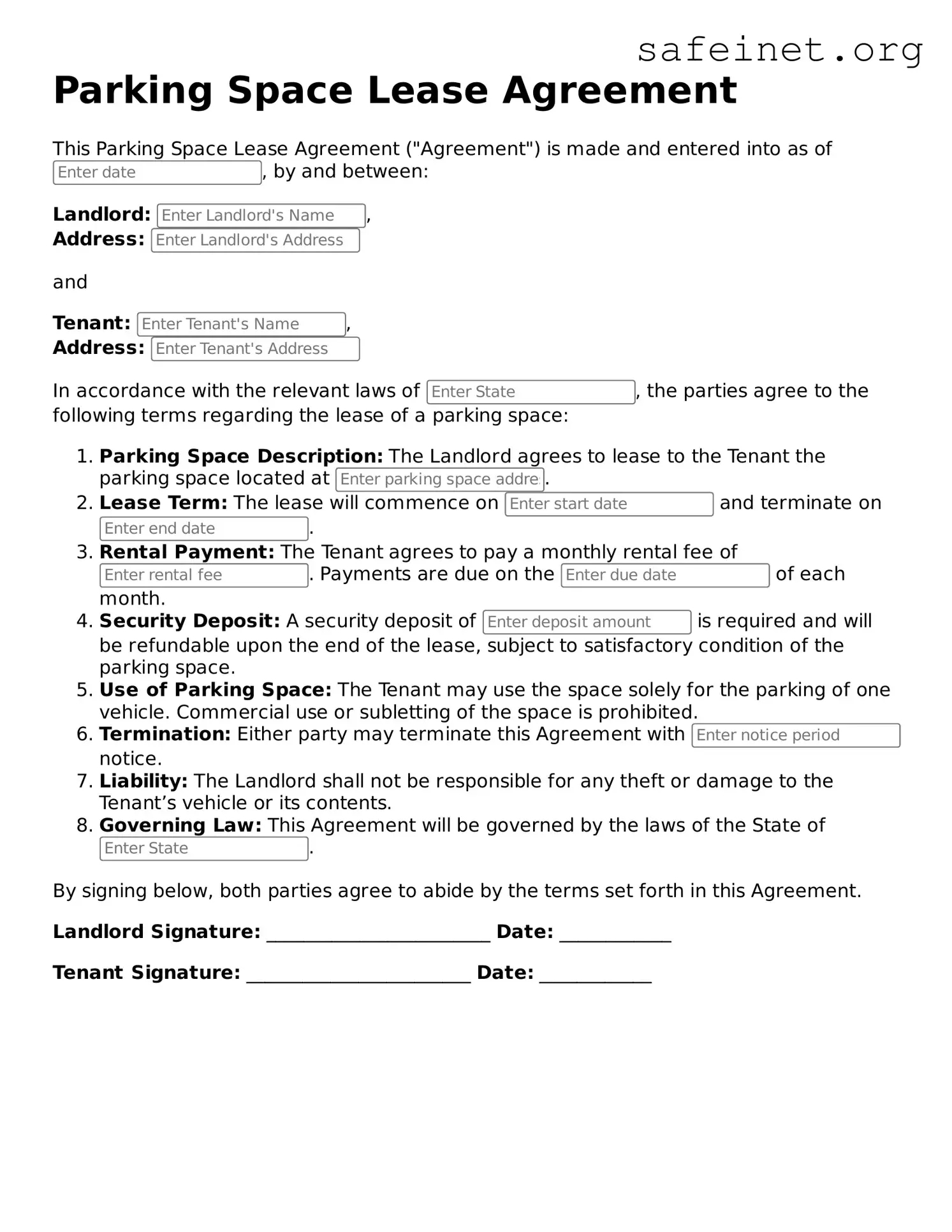What is a Parking Space Lease Agreement?
A Parking Space Lease Agreement is a legal document that outlines the terms and conditions regarding the rental of a parking space. This agreement specifies the parties involved, the term of the lease, payment details, and any rules or responsibilities tied to the use of the parking space.
Who can enter into a Parking Space Lease Agreement?
Any individual or entity can enter into this agreement, including property owners who wish to lease out their parking spaces and individuals seeking a designated parking area. It’s essential for both parties to agree on the terms laid out in the agreement before signing it.
How long is the lease typically for?
The duration of a Parking Space Lease Agreement can vary significantly. Some agreements may be for a month-to-month basis, while others can last for a year or longer. The specific term will be outlined in the lease and can often be renewed upon expiration if both parties agree.
What should I include in the agreement?
A comprehensive agreement should include the names of both parties, a detailed description of the parking space, the rental amount, payment schedule, the term of the lease, and any specific rules related to the use of the space. Additionally, clauses regarding termination and liability are essential to protect both parties.
What if the parking space is damaged?
Responsibility for damages often depends on the terms set in the agreement. Typically, the agreement should specify who is responsible for repairs and maintenance. If damage occurs, the affected party should notify the other party immediately as outlined in the lease.
Can I terminate the agreement early?
Yes, the ability to terminate the lease early typically depends on the terms outlined in the agreement. Some leases may allow for early termination with proper notice, while others may require a specific commitment period. Always refer to the lease for guidance on this issue.
What happens if I fail to pay rent?
Failure to pay rent may lead to penalties as stipulated in the Parking Space Lease Agreement. This could include late fees or termination of the lease. Landlords may also have the right to take back possession of the parking space if payment is not made in accordance with the lease terms.
Is a written agreement necessary?
While verbal agreements can be made, a written Parking Space Lease Agreement is highly recommended. A written document provides legal protection for both parties and outlines all terms and conditions, minimizing misunderstandings.
Can the lease agreement be modified?
Yes, a Parking Space Lease Agreement can be modified, but any changes should be documented in writing and agreed upon by both parties. It’s crucial to amend the agreement formally to avoid disputes in the future.
